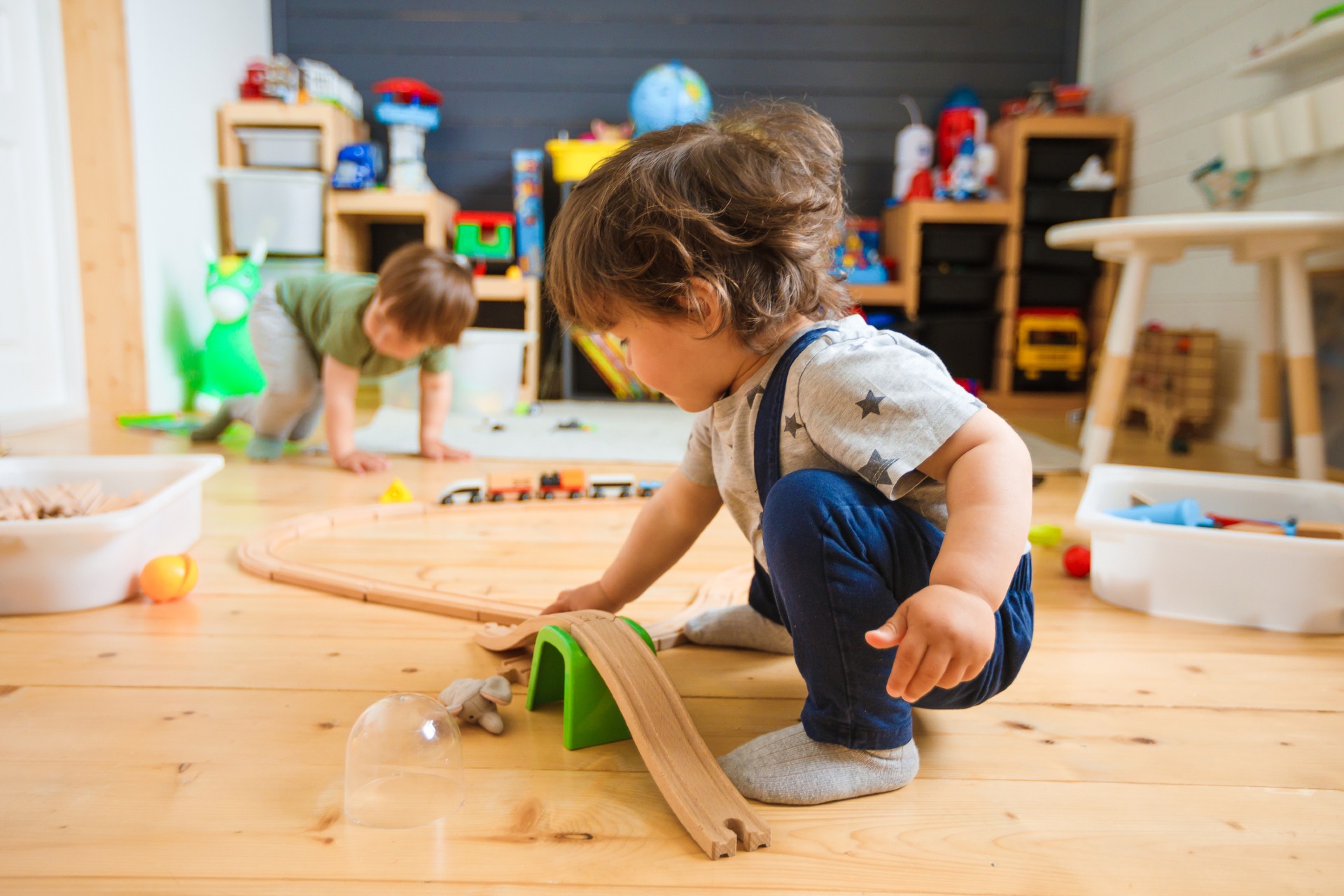How to Select the Best Daycare for Infants Near Me: A Parent's Guide to Quality Care
How to Select the Best Daycare for Infants Near Me: A Parent's Guide to Quality Care
Blog Article
The Duty of Childcare in Cultivating Your Toddler's Emotional and Cognitive Skills Through Structured Play and
The role of daycare in nurturing a toddler's emotional and cognitive advancement is often ignored, yet it offers as a crucial environment for organized play and educational activities. With carefully created experiences and communications, caregivers help with vital abilities such as emotional awareness and problem-solving. These foundational elements not just boost a kid's capability to get in touch with peers however likewise foster durability and adaptability in numerous circumstances. Comprehending the subtleties of exactly how these dynamics unravel elevates vital inquiries about the long-term impact of very early daycare experiences on individual development and social integration. What might that imply for future development?
Relevance of Organized Play
Structured play is an important component of young child development, as it provides a structure whereby children can involve in significant interactions and learning experiences. This kind of play is purposefully made to promote various developing skills, such as cognitive, social, and physical abilities. By joining organized activities, kids learn to adhere to policies, take turns, and comply with peers, every one of which are crucial for their social skills.

In addition, structured play commonly integrates instructional components, such as counting, shade acknowledgment, and language advancement, perfectly incorporating discovering right into fun tasks. This technique not only catches toddlers' interest but additionally strengthens important principles in a satisfying manner. Generally, structured play is important in advertising a well balanced growth, furnishing toddlers with the foundational abilities required for future understanding and social interactions.
Emotional Growth in Day Care
Childcare environments play a vital duty in fostering emotional development in kids. These settings supply youngsters with possibilities to interact with caregivers and peers, facilitating the growth of important social-emotional skills. With routine communications, young children find out to identify and share their feelings, such as unhappiness, happiness, or disappointment, which is important for their emotional maturity.

Furthermore, the organized environment of day care permits kids to experience a selection of feelings in a safe area. They find out to manage feelings of splitting up anxiousness when transitioning from home to daycare and develop strength as they navigate new connections and experiences. Generally, the psychological growth fostered in daycare not only benefits young children throughout their developmental years however additionally lays the foundation for healthy and balanced social relationships and emotional well-being throughout their lives.
Cognitive Skills Through Activities
Through engaging in a selection of activities, young children in daycare settings can substantially improve their cognitive skills. Structured play and educational tasks are vital in advertising cognitive advancement, as they provide possibilities for expedition, analytical, this hyperlink and vital reasoning. Tasks such as problems, structure blocks, and memory games test toddlers to believe artistically and logically, promoting important abilities like spatial awareness and pattern acknowledgment.
Additionally, interactive storytime sessions urge language development and understanding. By paying attention to tales, toddlers learn to refine info and engage their creative imaginations, which enhances their narrative skills and vocabulary. Furthermore, hands-on activities entailing crafts and arts promote great motor abilities while also encouraging self-expression and creative thinking.
Sensory play, such as sand or water activities, allows kids to trying out various textures and products, promoting inquiry-based understanding. These experiences not just boost cognitive capacities however also impart a sense of inquisitiveness regarding the globe around them - baby daycare near me. Overall, the diverse series of cognitive tasks given in childcare environments plays a pivotal function in shaping a kid's capability to assume seriously, address troubles, and engage meaningfully with their environments
Social Connections and Interaction
In a caring environment, toddlers normally create social links and take part in interactions that are essential for their emotional and interpersonal growth. Childcare setups supply a distinct possibility for youngsters to interact with peers, fostering important social skills such as sharing, teamwork, and problem resolution. These communications aid toddlers discover to browse their feelings and recognize the point click to find out more of views of others, which are crucial parts of psychological intelligence.
With structured play and group tasks, kids are urged to communicate their sensations and thoughts, improving their verbal skills and advertising empathy. Involving with peers likewise introduces them to varied social norms and actions, enhancing their understanding of social dynamics. Moreover, consistent interaction with various other children assists to construct a feeling of neighborhood, offering an assistance system that is valuable for emotional growth.
As toddlers take part in collaborative jobs, they discover the significance of synergy, settlement, and perseverance. These foundational social skills are important as they prepare for future relationships, both in academic settings and beyond. Eventually, the social links created in day care play a substantial role fit a young child's capacity to engage positively and efficiently with others throughout their lives.
Role of Caregivers in Development

Caretakers play an essential duty in cultivating young child growth, especially in the context of the social interactions they experience in childcare setups. These professionals offer a caring environment where toddlers can explore their emotions and cognitive capabilities through structured play and educational tasks. By involving investigate this site in purposeful conversations, caretakers sustain language advancement and enhance social abilities.
In addition, caretakers model psychological reactions and suitable behaviors, helping toddlers find out compassion and problem resolution. Their visibility also creates a sense of security, which is essential for children to with confidence explore their environments and engage with peers.
Along with social and psychological assistance, caretakers are critical in implementing instructional curricula that advertise cognitive growth - daycare for infants near me. They present age-appropriate tasks that stimulate curiosity, crucial reasoning, and problem-solving skills. This organized technique ensures that young children not just enjoy their playtime yet also obtain fundamental expertise essential for future understanding
Inevitably, the top quality of caretaker interactions considerably influences a toddler's total development. By fostering a engaging and helpful ambience, caregivers help lay the groundwork for healthy psychological and cognitive development, furnishing kids with important abilities for their lifelong journey.
Conclusion
Finally, day care functions as an essential atmosphere for cultivating cognitive and emotional development in young children. With structured play and educational activities, kids experience substantial growth in their capacity to recognize and express feelings, create important thinking skills, and type essential social links. The role of caretakers contributes in assisting in these experiences, making sure that each child take advantage of a nurturing ambience that promotes long-lasting psychological health and cognitive innovation.
The duty of daycare in supporting a kid's cognitive and emotional development is usually taken too lightly, yet it serves as a crucial environment for structured play and educational activities. Generally, structured play is important in advertising a well balanced development, furnishing kids with the fundamental skills required for future discovering and social communications.
Daycare settings play a vital duty in cultivating psychological development in toddlers. On the whole, the psychological advancement fostered in childcare not just advantages toddlers throughout their formative years but likewise lays the groundwork for healthy interpersonal relationships and psychological wellness throughout their lives.
Via structured play and team tasks, toddlers are motivated to interact their thoughts and feelings, improving their spoken skills and promoting empathy.
Report this page